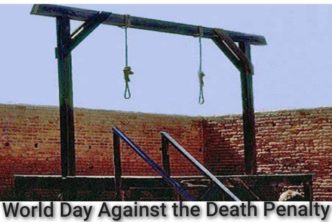Middle East
Sep 8, 2005
Asia Times Onlin
www.atimes.com
By Pepe Escobar
TEHRAN – If only Iran’s reformist movement had listened long and hard to Emadeddin Baghi, social sciences researcher, religious studies scholar, journalist, author of 20 books (six of them banned), former political prisoner and one of the country’s foremost dissident intellectuals.
He was certain former president and still head of the Expediency Council Hashemi Rafsanjani would lose the latest Iranian presidential elections, which he did, beaten by former Tehran mayor Mahmud Ahmadinejad in a run-off between the two. The main reason was “the gap between reformists and the people”. In fact, as early as 1997 Baghi had written an essay called “Bread or Freedom?” in a book titled The Rights of Opposition. For the past three years he has been reminding his friends “that the meaning of ‘democracy’ is known only to us, not to the average people. We should start social work. I was trying to tell them we
had to change. Reformists in their literature are too remote. We should talk about human rights.”
Baghi repeats the cry of the reformists that bassijis ((Islamic vigilantes loyal to Supreme Leader Ayatollah Ali Khamenei), interfered with the voting, and votes were “twisted”, especially in Isfahan and Mashhad, the fiefdom of hardline Ayatollah Tabasi, known as “The King of Mashhad”. ” In the first round the regime was not openly promoting anybody. They knew for sure there would be a second round.” Only then was a massive pro-Ahmadinejad campaign unleashed.
There’s an undeniable atmosphere of goodwill around Tehran regarding Ahmadinejad. Average people in the bazaar, the mosque or the teahouse say he has sent all the right signals at the start of his presidency. He may be coining an Iranian version of compassionate conservatism.
Baghi says, “Maybe Ahmadinejad wants to do the right thing. But they [the system] cannot do it.” Baghi doesn’t think “the Iranian government embodies the totality of power. We as journalists and politicians may also have a role. Our behavior can give them the excuse for restrictions, or the closing down of newspapers. Or we can be wise enough not to let them.” Baghi is very much aware that international public opinion is also alert. “Iran is not Iraq or Afghanistan. Here there is distribution of power, political groups, religious clerics with different opinions. From the cultural point of view, Iranians have proved their worth, but sometimes we do unpredictable things … .”
Two men in a cell
In a 1999 hardliner offensive attacking and closing down newspapers, Baghi was arrested along with two other “powerful journalists” – as the guardians of the Islamic republic dubbed them. One of these was Akbar Ganji, who would become Iran’s most famous political prisoner.
Sentenced to seven-and-a-half years, Baghi served three before he was released on appeal. “While in jail I realized that the rights of all prisoners were not being fulfilled.” There are roughly 130,000 prisoners in Iran: officially, the Islamic republic “has no political prisoners”. Three years ago, again a free man, Baghi formed a non-government organization (NGO), Defending Prisoners Rights Society, the first and the only one of its kind in Iran, connected with the London-based Penal Reform International and also Amnesty International. The NGO relies on 100 volunteers and private donations: companies are “afraid to help” – yet one more case of invisible censorship by the system.
Baghi discusses at length the major reasons for his detention. Number one was a 1999 article, “Execution and Ghesal”, in which he debunked a series of rules in Islamic law that govern the courts. “They accused me of distorting Islamic law.” Eleven top clerics and five grand ayatollahs – including the extremely respected Hussein Ali Montazeri (Baghi‘s teacher at his hawza – school of traditional Islamic studies – in Qom), Saanei and Ardabili (a previous head of the Judiciary) – wrote a letter on his behalf and said his criticism was not against Islam. “But the judiciary didn’t listen to them.” The paper where the article was printed was shut down and its editor was arrested. Dissident Grand Ayatollah Montazeri – who spent five years under house arrest, with his hawza in Qom shut down – remains a thorn in the side of the regime.
Number two accusation centered on Baghi‘s 1998 book, The Tragedy of Democracy in Iran , about the so-called “chain murders” of opposition figures, three writers and a politician – which then president Mohammad Khatami himself said were conducted by Ettellat, the intelligence services. The government said the killers were Israelis. Baghi argued this was an inside job. He was accused and condemned as a security threat to the Islamic republic. “There were many killings throughout the 1990s, in the time of [Hojattoleslam Ali ] Fallaliah as minister of intelligence.” Fallaliah’s deputy at the time was none other than Mostafa Pourmohammadi, the new, Ahmadinejad-appointed minister of interior. There are widespread fears in progressive circles in Tehran that Pourmohammadi may be worse than the Taliban. Baghi‘s conclusion is bleak: “With the same hardliners in place in top positions, closing down of newspapers and arrest of journalists and intellectuals are again a distinct possibility.”
Baghi says he suffered “no physical torture” while serving his sentence in Tehran’s notorious Evin prison. “For the first six months we were put in single cells, disconnected from everything. For the next six months, we were five in one cell.” He was with Ganji, and then the two lived in the same cell for the next two years. They could read newspapers, listen to the radio and watch TV and had “one hour a day of sunshine”. They could receive letters, but no phone calls.
Last Saturday, Ganji was released from Millat hospital after ending a 65-day hunger strike. His immediate future is still unclear, although the latest reports suggest that he is back in prison. In August, UN Secretary General Kofi Annan sent a letter to Ahmadinejad directly requesting him to free Ganji for humanitarian reasons. Negotiations are ongoing.
Ganji’s wife, Massoumeh Shafii, is hopeful that “officials will fulfill their promise and Ganji will be transferred home within the next few days”. Ahmadinejad will have to convince a lot of irate turbans. Hardliners treat Ganji like the plague. He called for a boycott of the presidential election and wrote that Khamenei, according to the father of the revolution Grand Ayatollah Ruhollah Khomeini’s own thoughts, should be impeached – a supreme offence in the Islamic republic. Ganji refers to Khamenei as “the Sultan”. As much as Baghi wants to proceed with caution, Ganji is no-holds-barred – for him, the national motto must be nothing less than “the Sultan must go” – a stunning echo of “the Shah must go” of 1978 in the year prior to the Islamic revolution.
Baghi dismisses an alleged rift between himself and Ganji as “nonsense”, part of an ultra-conservative campaign to discredit them both. Baghi said one of Ganji’s doctors told the jailed journalist “they want to discredit you. They want to prove that you were lying during your hunger strike”, taking intravenous vitamin injections. Baghi hopes “the judiciary decides soon to dismiss him”. The frail Ganji – he lost 30 kilograms during his hunger strike – still has six months to fulfill his six-year sentence.
Battling the ultra-conservatives
In 2004, Baghi defied the system again – in a piece published in English by Stanford University Press. The Interior Ministry told him “you are insisting on your violation”. But this time he was not arrested, although he was warned, “You will keep writing until they execute you.”
He has another book ready for print, The Right of Living, which he describes as a scientific (from an Islamic point of view) comparison between the UN Declaration of Human Rights and Iranian law. But he won’t get official permission to get published. Not when the new minister of culture and Islamic guidance is hardliner Safar Harandi, the former head of the ultra-conservative Kayhan newspaper. Baghi is dying to meet him personally. Reaction in holy Qom is always divided as far as Baghi‘s writing is concerned. “But the ultra-conservatives [against him] always got the power.”
Baghi has a long and winding road ahead. His passport is confiscated: he cannot leave Iran. Apart from his NGO work, he is a columnist for the highly influential reformist newspaper Shargh (daily circulation 120,000). His own newspaper, Jommuriyat, was closed down after he left jail; it had the second-highest circulation, behind Shargh.
“Now I try not to create problems for Shargh,” he adds with a smile. The paper’s chief editor is his just-married son-in-law, at 27 the youngest editor in Iran. “He was also arrested. Because he was so young and he writes so well, the interrogators thought he was a front for another writer.” Shargh is financed by Muhammad Mazaheri, a wealthy player in the construction business. Pragmatic, the paper supported Rafsanjani in the June elections. Its role now is to keep Ahmadinejad in check – especially when the reformist block in the majlis (parliament) has been reduced to only 40. The paper should also be “wise” enough not to arouse the ire of the new, ultra-hawkish interior minister, “Taliban” Pourmohammadi. Baghi is more than ready for battle.
(Copyright 2005 Asia Times Online Ltd. All rights reserved. Please contact us for information on sales, syndication and republishing .)
Iran knocks Europe out
(Sep 7, ’05)
ElBaradei’s report deconstructed
(Sep 7, ’05)
A nuclear (mis)adventure in Isfahan (Sep 2, ’05)
New delhi Hotels
Maldives Hotels
Sri lanka Hotels
Manila Hotels
Bali Hotels
Korea Hotels





